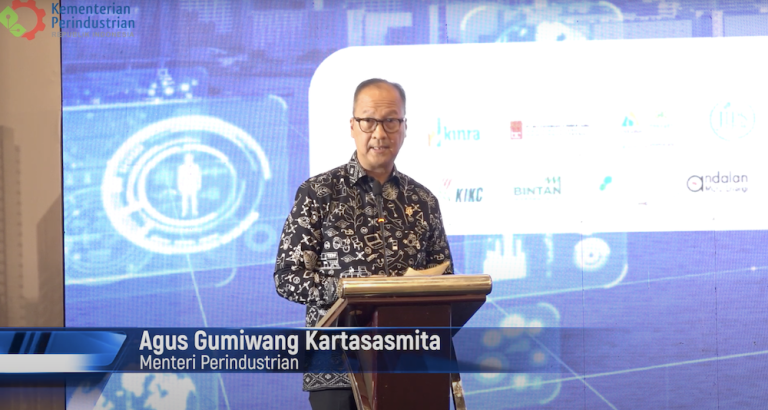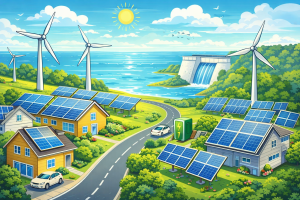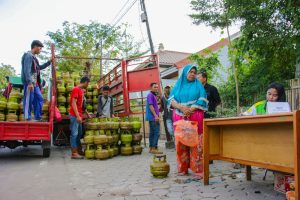Jakarta – Amid rising geopolitical tensions between Iran and Israel that are shaking the global energy market, Industry Minister Agus Gumiwang Kartasasmita has called on national industry players to take swift steps to improve energy efficiency and diversification, thereby maintaining the stability, competitiveness, and sustainability of Indonesia’s manufacturing sector.
“Domestic industries cannot continue to rely on imported energy. During an uncertain global situation, energy efficiency is not just an option, but a necessity,” Agus said in a press release on Friday, 20 June.
Iran-Israel tensions have had a direct effect on the world energy market. Brent crude oil prices have fluctuated between USD 73 to USD 92 per barrel since the conflict erupted. Analysts predict a potential spike of up to 15-20% by 2025, especially if vital routes such as the Strait of Hormuz, which handles 30% of global oil supply, are disrupted.
Iran’s own oil production of 3.2 million barrels per day is in the spotlight as it could potentially be paralysed if the conflict is prolonged.
“Efficient use of energy from various sources can increase the productivity and competitiveness of industrial products. This also supports national energy sovereignty, which is President Prabowo’s priority,” the Minister added.
Energy diversification and food downstreaming become national strategies
Not only relying on efficiency, the Minister of Industry encourages industries to replace imported energy sources with domestic and renewable energy sources, such as bioenergy, geothermal energy, and industrial waste, as alternative fuels.
In addition to the energy sector, the Ministry of Industry also highlights the importance of downstreaming the agro sector as a strategy to reduce dependence on imported foodstuffs, whose prices are increasingly affected by spikes in logistics costs and fluctuations in global exchange rates.
“Industries must be able to process domestic agricultural, plantation, fishery, and forestry products. This is an important part of food security and a priority of President Prabowo’s administration,” Agus said.
Geopolitical conflicts reinforce the urgency of transforming Indonesia’s industrial supply chain. Several sectors are now facing severe pressures. Among them, the automotive and electronics industries are plagued by semiconductor shortages, lead times of up to 26 weeks and potential export losses of USD 500 million. Then, textiles and footwear, profit margins eroded by 5-7% due to soaring logistics costs.
Then, the steel and nickel sectors saw coal transport costs rise by 15-20%, risking export losses of up to USD 1.2 billion.
Major maritime routes, such as the Suez Canal and the Strait of Hormuz, are experiencing serious disruptions, forcing logistics players to reroute to the Cape of Good Hope, South Africa, which increases delivery time by 10-15 days and doubles container costs by 200%.
Global challenges, local opportunities
Besides conflict, the trend of “friend-shoring” by Western countries and the European Union’s Carbon Border Adjustment Mechanism (CBAM) policy also adds to Indonesia’s export challenges. CBAM could increase compliance costs by 8-12% for carbon-intensive products.
On the other hand, the Minister of Industry sees potential in Indonesia’s mineral wealth, including nickel, which accounts for 40% of global demand for electric vehicle batteries.
“Our industry must innovate. From energy efficiency to mastering food production technology, everything must be directed at creating domestic added value,” Mr Agus said.
The Ministry of Industry also encourages industry players to utilise the Local Currency Settlement (LCS) scheme offered by Bank Indonesia to mitigate the impact of the rupiah exchange rate against the US dollar and the currencies of trading partners.
“The industry can use this facility to maintain the stability of production input costs, especially from LCS partner countries,” the Minister added.
Indonesia also faces supply risks for NPK-based fertilisers, as 64% of phosphate raw materials are imported from Egypt and several other Middle Eastern countries. Although the volume is small, the potential for disruption due to conflict remains significant. (Hartatik)
Banner photo: Industry Minister Agus Gumiwang Kartasasmita (Ministry of Industry YouTube channel screenshot)















